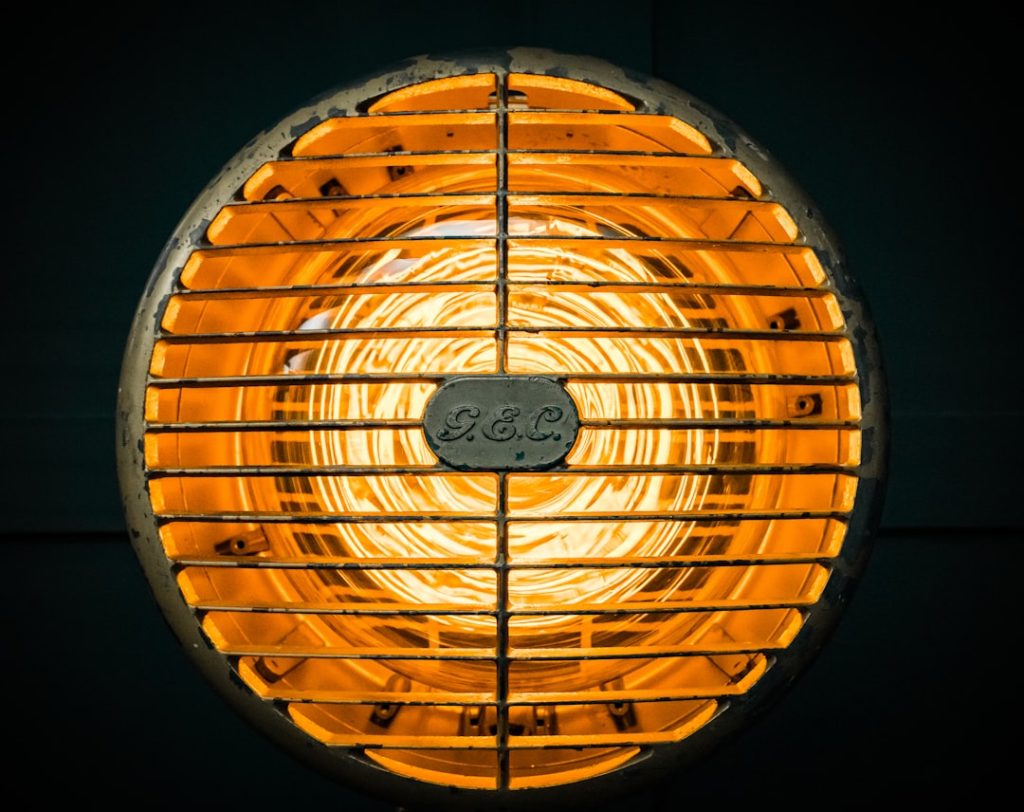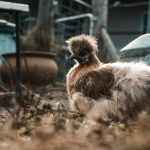Chickens have specific nutritional requirements that must be met for optimal health, particularly during cold weather. As temperatures drop, chickens expend more energy to maintain their body heat, necessitating dietary adjustments to meet increased energy demands. Protein intake is also crucial for supporting overall health and immune function in colder months.
Chicken owners should be aware of these nutritional needs and provide a balanced diet to ensure their flock’s well-being during winter. A diet high in energy, protein, and essential nutrients is vital for chickens to stay warm and healthy in cold weather. Supplementing regular feed with high-energy foods like grains and seeds helps chickens generate heat and maintain body temperature.
Protein supports muscle development and overall health, while insulating foods aid in body heat retention. Foods that boost the immune system can help prevent illness during colder months. Proper hydration is essential, so providing water-rich foods and ensuring access to clean water is crucial for maintaining chicken health in cold weather.
Understanding and addressing these nutritional needs is key to helping chickens thrive during winter months.
Table of Contents
- 1 High-energy foods to keep chickens warm
- 2 Foods rich in protein for cold weather
- 3 Insulating foods to help chickens maintain body heat
- 4 Foods to boost immune system and overall health in cold weather
- 5 Hydration and water-rich foods for cold weather
- 6 Foods to avoid in cold weather for chickens
- 7 FAQs
- 7.1 What are some foods that can help keep chickens warm in cold weather?
- 7.2 Why is it important to keep chickens warm in cold weather?
- 7.3 Are there any foods that should be avoided when trying to keep chickens warm?
- 7.4 How should these foods be offered to chickens?
- 7.5 Are there any other ways to keep chickens warm in cold weather?
Key Takeaways
- Chickens require more energy in cold weather to maintain body heat
- High-energy foods like corn and sunflower seeds can help keep chickens warm
- Protein-rich foods such as mealworms and soybeans are important for muscle function and warmth
- Insulating foods like oats and barley can help chickens maintain body heat
- Foods rich in vitamins and minerals, such as leafy greens and fruits, can boost immune system and overall health in cold weather
- Hydration is crucial in cold weather, provide water-rich foods like cucumbers and watermelon
- Avoid feeding chickens foods high in moisture, as it can lower body temperature and cause health issues
High-energy foods to keep chickens warm
Grains: A Primary Source of Energy
Grains such as corn, wheat, and barley are excellent sources of energy for chickens and can help them stay warm during the winter months. These grains are rich in carbohydrates, which are a primary source of energy for chickens.
Seeds: An Extra Boost of Energy
Additionally, seeds such as sunflower seeds and flaxseeds are also high in energy and can provide chickens with the extra boost they need to stay warm in cold weather. These high-energy foods can be provided as part of a balanced diet to ensure that chickens have the energy they need to thrive during the winter.
Oats: A Nutritious and Energy-Rich Food
Another excellent high-energy food for chickens is oats, which are not only a great source of energy but also provide essential nutrients such as fiber and protein. Oats can be fed to chickens in various forms, including whole oats, rolled oats, or oatmeal, and can be mixed with other grains to create a nutritious and energy-rich feed.
Supplementing with Kitchen Scraps
Additionally, providing chickens with access to kitchen scraps such as bread, pasta, and rice can also help supplement their energy intake during the colder months. By incorporating these high-energy foods into their diet, chicken owners can help ensure that their flock has the necessary fuel to stay warm and healthy during the winter.
Foods rich in protein for cold weather

Protein is an essential nutrient for chickens, especially in cold weather when they require additional support for muscle development and overall health. Foods rich in protein can help chickens maintain their strength and vitality during the winter months. One of the best sources of protein for chickens is soybeans, which are not only high in protein but also contain essential amino acids that are crucial for muscle growth and repair.
Soybeans can be fed to chickens in various forms, including whole soybeans, soybean meal, or roasted soybeans, and can be an excellent addition to their diet during cold weather. Another excellent source of protein for chickens is fish meal, which is made from ground-up fish and is a highly digestible protein source. Fish meal is rich in essential amino acids and can provide chickens with the protein they need to support their overall health and immune function during the colder months.
Additionally, providing chickens with access to insects such as mealworms or crickets can also help supplement their protein intake. These natural sources of protein can be a valuable addition to a chicken’s diet in cold weather and can help ensure that they have the necessary nutrients to thrive during the winter.
Insulating foods to help chickens maintain body heat
In addition to high-energy and protein-rich foods, insulating foods can also help chickens maintain body heat and stay warm during cold weather. Foods such as black oil sunflower seeds are an excellent source of healthy fats, which can help insulate chickens and provide them with the extra energy they need to stay warm. These seeds are also rich in vitamins and minerals, making them a valuable addition to a chicken’s diet during the winter months.
Additionally, providing chickens with access to cracked corn can also help insulate them and provide an extra layer of warmth during cold weather. Another insulating food for chickens is coconut oil, which is high in medium-chain fatty acids that can help support their metabolism and provide them with a source of sustainable energy. Coconut oil can be added to a chicken’s feed or provided separately as a supplement to help them maintain body heat during the colder months.
Additionally, providing chickens with access to fresh greens such as kale, spinach, or cabbage can also help insulate them and provide additional nutrients to support their overall health. By incorporating these insulating foods into their diet, chicken owners can help ensure that their flock stays warm and healthy during the winter.
Foods to boost immune system and overall health in cold weather
During cold weather, it’s important to provide chickens with foods that can help boost their immune system and support their overall health. Foods rich in vitamins and minerals such as fruits and vegetables can provide chickens with essential nutrients to help them stay healthy during the winter months. Fruits such as apples, berries, and citrus fruits are excellent sources of vitamins and antioxidants that can help support a chicken’s immune function and protect them from illness.
These fruits can be provided as treats or added to their regular feed to ensure that they receive the necessary nutrients to thrive in cold weather. In addition to fruits, providing chickens with access to vegetables such as carrots, broccoli, and squash can also help support their overall health and well-being. These vegetables are rich in vitamins and minerals that can help boost their immune system and provide them with essential nutrients to support their vitality during the colder months.
Additionally, providing chickens with access to herbs such as garlic, oregano, and thyme can also help support their immune function and protect them from illness. By incorporating these immune-boosting foods into their diet, chicken owners can help ensure that their flock stays healthy and resilient during the winter.
Hydration and water-rich foods for cold weather

Water-Rich Foods for Hydration
Offering water-rich foods such as watermelon, cucumbers, or zucchini can provide essential moisture and vitamins and minerals that support a chicken’s overall health. These foods not only help with hydration but also contain nutrients that can support a chicken’s overall well-being.
Additional Hydration Options
Incorporating lettuce into their diet is another excellent way to provide chickens with essential hydration. Lettuce is high in moisture and contains essential nutrients such as vitamins A and K. It can be provided as a treat or added to their regular feed to help supplement their hydration needs during the colder months.
Fruits for Hydration and Nutrition
Providing chickens with access to fruits such as melons or berries can also help support their hydration requirements while providing them with essential vitamins and antioxidants. By ensuring that chickens have access to water-rich foods in addition to clean water, chicken owners can help ensure that their flock stays hydrated and healthy during the winter.
Foods to avoid in cold weather for chickens
While it’s important to provide chickens with a well-balanced diet in cold weather, there are certain foods that should be avoided as they can be harmful to their health. Foods such as avocado, chocolate, and caffeine should never be fed to chickens as they contain toxins that can be harmful or even fatal to them. Additionally, feeding chickens spoiled or moldy food should be avoided as it can cause illness or digestive issues.
It’s important for chicken owners to be mindful of what they feed their flock and ensure that they provide them with safe and nutritious foods to support their well-being during the winter months. In addition to specific foods, it’s also important to avoid feeding chickens excessive amounts of treats or scraps that can disrupt their balanced diet. While treats can be given in moderation, overfeeding chickens with high-fat or high-sugar treats can lead to obesity and other health issues.
It’s important for chicken owners to prioritize a well-balanced diet for their flock and avoid overindulging them with unhealthy treats. By being mindful of what foods to avoid and maintaining a balanced diet for their flock, chicken owners can help ensure that their chickens stay healthy and thriving during the colder months. In conclusion, understanding the nutritional needs of chickens in cold weather is crucial for providing them with the care they need to thrive during the winter months.
By incorporating high-energy foods, protein-rich foods, insulating foods, immune-boosting foods, hydration sources, and avoiding harmful foods into their diet, chicken owners can help ensure that their flock stays warm, healthy, and resilient in cold weather. Providing a well-balanced diet that meets their specific nutritional needs is key to supporting a chicken’s overall health and well-being during the colder months.
If you’re looking for tips on how to keep your chickens warm during the winter, you might want to check out this article on chicken coop designs in Grand Island, NE. It offers valuable insights on how to create a cozy and insulated space for your feathered friends to stay warm and comfortable during the colder months.
FAQs
What are some foods that can help keep chickens warm in cold weather?
Some foods that can help keep chickens warm in cold weather include cracked corn, black oil sunflower seeds, and mealworms. These foods are high in fat and protein, which can help chickens maintain their body temperature in cold conditions.
Why is it important to keep chickens warm in cold weather?
Chickens are susceptible to cold weather and can suffer from frostbite and hypothermia if not kept warm. Providing them with the right foods can help them maintain their body temperature and stay healthy during the winter months.
Are there any foods that should be avoided when trying to keep chickens warm?
Foods that are high in water content, such as fruits and vegetables, should be avoided in cold weather as they can lower a chicken’s body temperature. It’s best to stick to high-fat and high-protein foods to help keep chickens warm.
How should these foods be offered to chickens?
These foods can be offered to chickens in a variety of ways, such as scattering them on the ground for the chickens to peck at, or placing them in a feeder or trough. It’s important to ensure that the food is easily accessible to all the chickens in the flock.
Are there any other ways to keep chickens warm in cold weather?
In addition to providing the right foods, other ways to keep chickens warm in cold weather include insulating the coop, using heat lamps or heated waterers, and providing extra bedding for the chickens to snuggle into. It’s important to ensure that the coop is well-ventilated to prevent moisture buildup.
Meet Walter, the feathered-friend fanatic of Florida! Nestled in the sunshine state, Walter struts through life with his feathered companions, clucking his way to happiness. With a coop that’s fancier than a five-star hotel, he’s the Don Juan of the chicken world. When he’s not teaching his hens to do the cha-cha, you’ll find him in a heated debate with his prized rooster, Sir Clucks-a-Lot. Walter’s poultry passion is no yolk; he’s the sunny-side-up guy you never knew you needed in your flock of friends!







